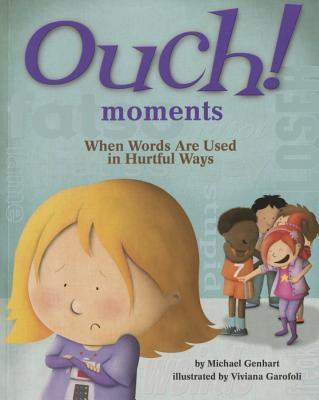Explains "ouch moments" in kid-friendly terms, offers practical strategies for what kids can do to help, and empowers kids to stand up to mean and hurtful language.
Microaggressions or "ouch moments," as they are referred to in the story, are brief exchanges where an indignity, insult, or slight is expressed--whether intentionally or not--from one person to another. For instance, when children use words like "lame" or "gay" to mean that something is bad, weird, or different, they communicate a message that having a disability or being part of LGBTQ+ community is equal to being bad, weird, or different. Children likely are not trying to be hurtful; they may just be repeating words that they have heard in the past and may not realize the discriminatory connotations. Young people have a wonderful capacity to care about each other. However, they need guidance, mentoring, and modeling from adults to understand the impact of their words and behaviors.A Note to Parents and Caregivers by Kevin L. Nadal, PhD, provides more information about microaggressions, and strategies for talking to children about hurtful language, discrimination, and bias.
Excerpt: When a bee stings, Ouch! That hurts!When your finger gets caught in a closing door, that hurts a lot.
Hearing a mean or hurtful word hurts a lot, too. When other kids say something mean or hurtful, it is hard to know what to do.
